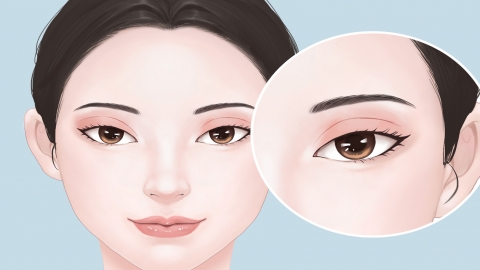Is it better to have a full incision double eyelid surgery with canthoplasty?
Generally speaking, whether it is beneficial to undergo full-incision double eyelid surgery combined with epicanthoplasty (inner corner opening) depends on an individual's baseline eye conditions. If the baseline eye condition is poor, undergoing full-incision double eyelid surgery with epicanthoplasty might be more suitable. However, if the baseline eye condition is already good, such surgical intervention is not typically recommended. Detailed analysis is as follows:

For individuals with poor baseline eye conditions, such as having monolids, ptotic upper eyelid skin, and epicanthal folds, full-incision double eyelid surgery combined with epicanthoplasty can effectively remove excess skin and fat, extend the length of the eye fissure, and overall enlarge the eyes, making them appear brighter and more aesthetically pleasing. This determination is made based on the individual's baseline eye conditions.
However, if the eyelid skin is thin, tight, and the eye fissure length is already sufficient, meaning the baseline eye condition is relatively good, performing full-incision double eyelid surgery with epicanthoplasty may result in excessive surgical trauma, increased risk of hypertrophic scarring, and potential compromise of the naturally pleasing appearance. In such cases, the aforementioned surgical procedure is not recommended.
It is advised to visit a reputable hospital and proceed with the procedure under the guidance of a qualified physician to ensure surgical safety and reliability. Postoperatively, it is important to maintain cleanliness and dryness of the eye area, avoid contact with water, rubbing, and any external impact.




